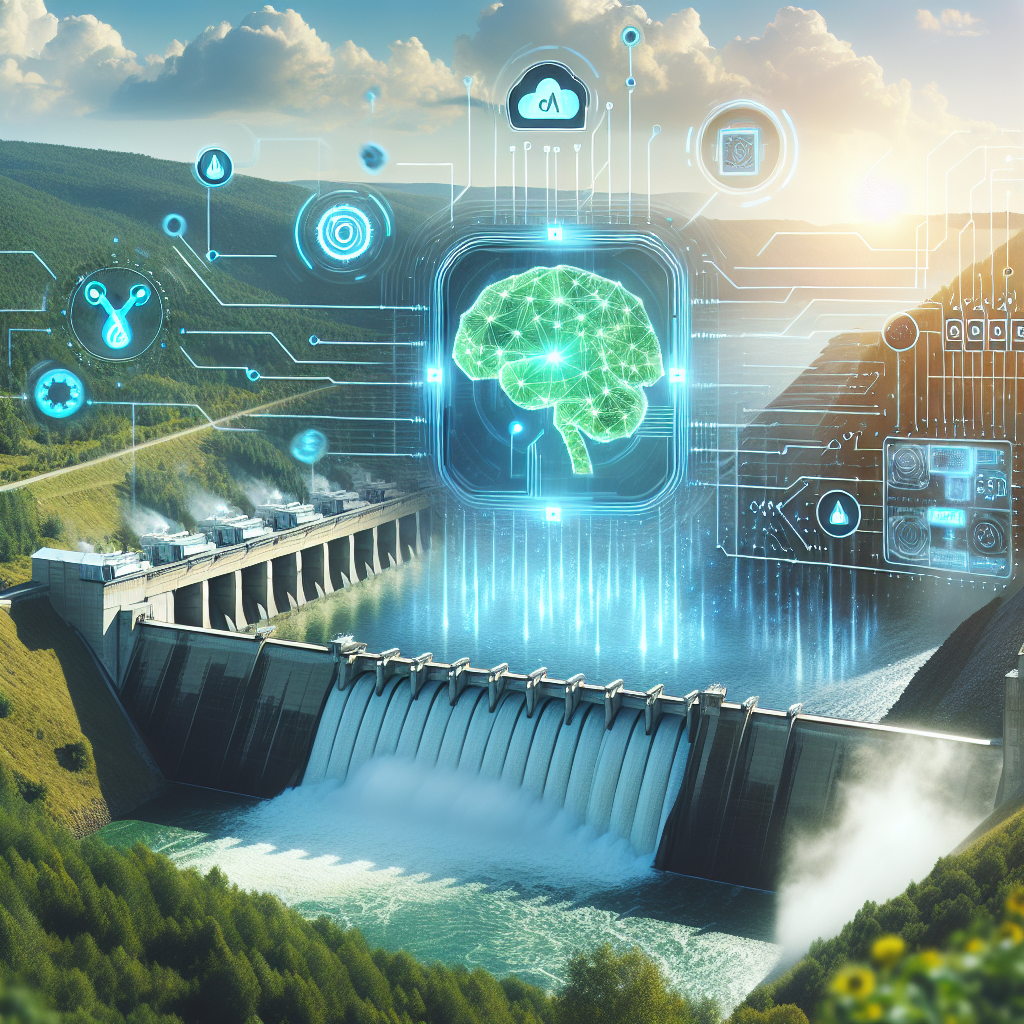Hydroelectric power generation has been a longstanding source of renewable energy, providing clean and sustainable electricity for millions of people around the world. With the advancement of technology, artificial intelligence (AI) solutions have emerged as a promising tool to optimize and improve the efficiency of hydroelectric power generation.
AI solutions in hydroelectric power generation involve the use of machine learning algorithms and data analytics to analyze and predict the behavior of hydroelectric plants. By leveraging AI, operators can enhance the performance of their plants, reduce maintenance costs, and increase energy production.
One of the key benefits of using AI in hydroelectric power generation is the ability to optimize the operation of the plant in real-time. AI algorithms can analyze data from sensors and historical performance to make informed decisions on when to adjust the flow of water, turbine speed, and other variables to maximize energy production. This can lead to significant improvements in efficiency and output, ultimately increasing the revenue generated by the plant.
Another advantage of AI solutions in hydroelectric power generation is predictive maintenance. By analyzing data from sensors and equipment, AI algorithms can detect anomalies and predict when maintenance is needed before a breakdown occurs. This proactive approach can help reduce downtime, extend the lifespan of equipment, and lower maintenance costs.
Furthermore, AI can help operators optimize the scheduling of maintenance tasks to minimize disruptions to power generation. By analyzing historical data and predicting when equipment is likely to fail, operators can plan maintenance activities during periods of low demand, ensuring that the plant continues to operate at peak efficiency.
In addition to optimizing operations and maintenance, AI solutions can also improve safety at hydroelectric plants. By analyzing data from sensors and cameras, AI algorithms can detect potential hazards and alert operators to take corrective action. This can help prevent accidents and ensure the well-being of employees working at the plant.
Overall, the use of AI in hydroelectric power generation has the potential to revolutionize the industry by improving efficiency, reducing costs, and enhancing safety. With the right technology and expertise, operators can harness the power of AI to unlock new opportunities and drive sustainable growth in the renewable energy sector.
FAQs:
Q: How can AI improve the efficiency of hydroelectric power generation?
A: AI can improve the efficiency of hydroelectric power generation by optimizing the operation of the plant in real-time, predicting maintenance needs, and enhancing safety measures.
Q: What are some of the benefits of using AI in hydroelectric power generation?
A: Some of the benefits of using AI in hydroelectric power generation include increased energy production, reduced maintenance costs, improved safety, and enhanced operational efficiency.
Q: How can operators implement AI solutions in their hydroelectric plants?
A: Operators can implement AI solutions in their hydroelectric plants by partnering with technology providers that specialize in AI for renewable energy, investing in training for their staff, and integrating AI algorithms into their existing control systems.
Q: What are some challenges associated with implementing AI in hydroelectric power generation?
A: Some challenges associated with implementing AI in hydroelectric power generation include data privacy concerns, integration with existing infrastructure, and the need for specialized expertise in AI technology.
Q: What is the future of AI in hydroelectric power generation?
A: The future of AI in hydroelectric power generation looks promising, with continued advancements in technology and increased adoption by operators. AI has the potential to drive innovation, improve sustainability, and transform the way we generate renewable energy.

